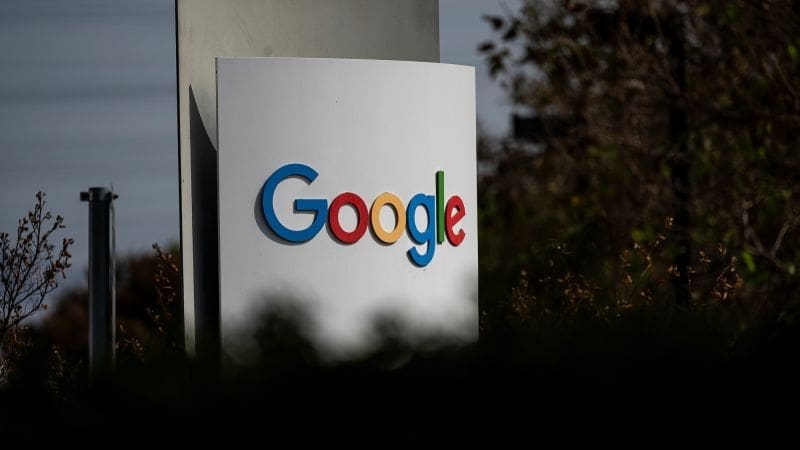Google has recently updated its AI ethics policy, omitting prior commitments against utilizing AI in weapon and surveillance technologies. This shift marks a significant change from previous guidelines that explicitly excluded such applications. The update reflects Google’s evolving stance amidst rapid AI advancements and growing geopolitical competition for AI leadership. The implications of this move are generating discussions among tech enthusiasts and policymakers alike.
The revised policy coincides with the skyrocketing evolution of AI capabilities, highlighted since the launch of OpenAI’s ChatGPT in 2022. Legislations are lagging, leaving companies to self-regulate. Google’s decision to relax these self-imposed restrictions signals a potential shift in how tech giants approach AI development and ethics. These developments underscore the delicate balance between innovation and ethical responsibility.
Google’s New AI Ethics Policy
The latest amendment in Google’s AI ethics policy signifies an important turn. Previously, the company’s policy explicitly ruled out the development of AI for weapons and wide-scale surveillance beyond international norms. Now, this language is conspicuously absent, raising questions about Google’s future direction in AI technology applications. With AI technology evolving fast, Google appears to be reevaluating its stance.
This decision underscores Google’s response to the burgeoning and competitive AI landscape. In a rapidly changing tech environment, core ethical principles are being tested. The need to stay competitive in AI innovation while maintaining ethical commitments presents a complex challenge for technology leaders. Google’s updated policy might also reflect increased confidence in managing AI’s risks without the previous explicit restrictions.
Historical Context of Google’s AI Policy
In 2018, Google instituted its AI Principles, setting boundaries on where AI should not be applied. These included mandates against AI used for harm or extensive surveillance. Back then, the company withdrew from a $10 billion Pentagon contract, citing potential conflicts with its AI Principles. Over 4,000 employees had protested against Google’s involvement in military projects.
At that time, Google’s decision to set AI boundaries was seen as a commitment to ethical standards. Employees played a crucial role in highlighting the potential misuse of AI technologies, influencing corporate policies. The recent policy shift marks a clear departure from these earlier commitments, signaling a change in Google’s strategic approach.
The Global AI Race and Ethical Implications
Artificial intelligence’s potential has created a global contest among countries to lead in AI advancements. Democracies like the United States and allies are keen to set standards reflecting values like human rights and equality. Google’s leadership believes in collaborating with governments and organizations sharing these values.
The rapid pace of AI development presents ethical dilemmas. Technology that can harm or infringe privacy needs careful scrutiny and regulation. Companies like Google face pressure to innovate while protecting users and upholding ethical standards. The updated policy might indicate a belief that collaboration on an international level will safeguard against misuse.
The ethical concerns surrounding AI demand robust frameworks that can evolve with the technology. As the AI race heats up, balancing innovation with ethical limits becomes increasingly challenging. Google’s policy change may suggest that it sees greater collaboration as a path forward in addressing these challenges while remaining competitive in AI technologies.
Responses from the Tech Community and Policymakers
The tech community is closely watching Google’s policy revision for potential impacts on AI development norms. Some critics argue that loosening restrictions could increase risk of misuse, while others see it as a pragmatic approach in a global tech rivalry.
Policymakers are also weighing in, considering how such corporate policy changes might influence regulations. The absence of explicit restrictions in Google’s policy opens debates about the role of self-regulation versus government oversight in handling AI’s ethical challenges.
This development sparks broader discussions on the accountability of tech giants in shaping ethical AI practices. The dialogue includes various stakeholders, from tech experts to government officials, each advocating for measures that ensure AI serves humanity’s best interests.
The Role of AI Frameworks in Shaping Policies
AI frameworks developed by democratic nations have increasingly informed corporate AI policies. Google’s updated policy cites these frameworks’ influence on its understanding of AI’s potential and risks. This could be part of a broader trend encouraging alignment with international standards.
By adopting principles that reflect democratic values, companies can bolster their ethical credibility. These frameworks provide a foundation for developing AI that is safe, fair, and beneficial. Google’s policy update might reflect a strategic alignment with these global standards.
However, adopting such frameworks requires a nuanced understanding of AI’s complexities. Companies must balance innovation with ethical commitment, ensuring their technologies advance without compromising integrity or public trust. Google’s policy change highlights these intricate considerations in AI governance.
Google’s Vision for AI in a Complex Geopolitical Landscape
Google envisions a future where AI development is led by democratic values such as freedom and equality. The company advocates for partnerships between businesses and governments to create AI that safeguards human rights while fostering growth and security.
This vision is set against a backdrop of geopolitical tensions influencing AI leadership. By advocating for democratically-aligned AI development, Google positions itself as a leader in ethical AI innovation. The company’s policy update might be seen as a call for collective responsibility in advancing ethical AI.
In this complex landscape, companies face the challenge of maintaining ethical integrity while pursuing technological advancement. Google’s policy shift reflects ongoing efforts to navigate these challenges and highlight the importance of shared values in AI development.
Potential Impacts on Google’s Public Perception
Google’s decision to revise its AI ethics policy could affect its reputation. The removal of specific commitments against weapon and surveillance technologies might be perceived as a departure from previously held ethical values.
Public perception of Google’s commitment to ethical AI development might shift as a result of this policy change. While some may view it as necessary for competitive edge, others might see it as compromising ethical standards.
The company’s ability to communicate its intentions and uphold ethical practices will shape its public image. Google’s reputation relies on its continued emphasis on ethical guidelines alongside technological innovation.
The Evolving Ethical Landscape of AI Technology
The ethical landscape for AI continues to evolve, with companies like Google at the forefront. Google’s policy change highlights the fluid nature of ethical standards in fast-evolving technological fields. It prompts ongoing evaluation of how best to manage AI’s impacts.
As AI capabilities expand, so do concerns about their applications. Google’s approach to policy evolution reflects a need for dynamic ethical standards to address new challenges. The company’s role in the AI sector involves leading discussions around ethical technology use and responsibility.
By engaging in these discussions, companies contribute to the establishment of ethical norms that can guide AI development. Google’s policy update signals its intention to remain engaged in shaping AI’s ethical future.
Navigating the Future of AI Ethics at Google
Google is at a crossroads, reflecting broader trends in AI’s development and ethical considerations. The company’s recent policy update underscores the need for ongoing dialogue on AI ethics in a rapidly changing landscape.
The balance between innovation and ethics remains a critical issue for technology leaders like Google. As AI technologies advance, maintaining ethical principles requires vigilance and cooperation across various sectors.
Google’s path forward in AI ethics involves continuous engagement with stakeholders to ensure technologies adhere to shared values. This approach positions Google as a pivotal actor in the ongoing conversation around AI’s role in society.
Conclusion: A Shift in Google’s Ethical Approach to AI
Google’s decision to update its AI ethics policy highlights a strategic shift amid evolving technological and geopolitical contexts. This change may influence how AI ethics are perceived worldwide, prompting discussions about responsible development and use of AI technology.
Google’s policy update reflects a broader shift in AI ethics, balancing innovation with responsibility. As the AI landscape evolves, Google’s approach will likely influence global standards and practices.








